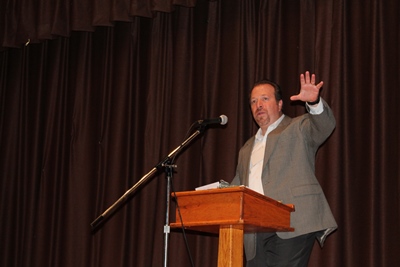FIST forum addresses opiate epidemic

BROOKLYN MEDIA GROUP/Photo by Denise Romano
In hopes of shedding light on the growing opiate epidemic across southern Brooklyn and Staten Island, grassroots organization Families In Support of Treatment (FIST) hosted a forum at Our Lady of Angels on Thursday, October 24.
“We have an epidemic of kids dying in Bay Ridge and everyone is in denial about it. There’s a blind eye,” said concerned mother Kathy Khatari, who attended the forum representing Councilmember Vincent Gentile.
“It’s mostly Arab kids dealing and dying,” she went on, noting that a man who had just turned 20 had died from an overdose just weeks ago. “In order to get help, you have to want it.”